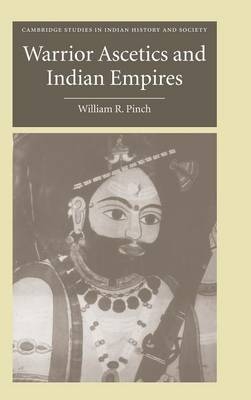
Warrior Ascetics and Indian Empires
Seiten
2006
Cambridge University Press (Verlag)
978-0-521-85168-8 (ISBN)
Cambridge University Press (Verlag)
978-0-521-85168-8 (ISBN)
This 2006 book sets out to piece together the story of the rise and demise of warrior asceticism in India from the 1500s to the present. It shows Hinduism is not a religion of non-violence, as Hindu warrior ascetics were an important component of the South Asian military labor market.
Many people assume, largely because of Gandhi's legacy, that Hinduism is a religion of non-violence. In this 2006 book William R. Pinch shows just how wrong this assumption is. Using the life of Anupgiri Gosain, a Hindu ascetic who lived at the end of the eighteenth century, he demonstrates that Hindu warrior ascetics were an important component of the South Asian military labor market in the medieval and early modern Indian past, and crucial to the rise of British imperialism. Today, they occupy a prominent place in modern Indian imaginations, ironically as romantic defenders of a Hindu India against foreign invasion, even though they are almost totally absent from Indian history. William R. Pinch's innovative and gloriously composed book sets out to piece together the story of the rise and demise of warrior asceticism in India from the 1500s to the present. It will appeal to students of religion and historians of empire.
Many people assume, largely because of Gandhi's legacy, that Hinduism is a religion of non-violence. In this 2006 book William R. Pinch shows just how wrong this assumption is. Using the life of Anupgiri Gosain, a Hindu ascetic who lived at the end of the eighteenth century, he demonstrates that Hindu warrior ascetics were an important component of the South Asian military labor market in the medieval and early modern Indian past, and crucial to the rise of British imperialism. Today, they occupy a prominent place in modern Indian imaginations, ironically as romantic defenders of a Hindu India against foreign invasion, even though they are almost totally absent from Indian history. William R. Pinch's innovative and gloriously composed book sets out to piece together the story of the rise and demise of warrior asceticism in India from the 1500s to the present. It will appeal to students of religion and historians of empire.
William R. Pinch is Associate Professor of History at Wesleyan University in Middletown, Connecticut. He is the author of Peasants and Monks in British India (1996).
1. Mughal Yogis; 2. WarLords; 3. Company Gosains; 4. Begams and Ranis in Rasdhan; 5. Sakti Bhakti; 6. Indian Sadhus; Kailash's counterfactual and other conclusions; Bibliography.
| Erscheint lt. Verlag | 17.3.2006 |
|---|---|
| Reihe/Serie | Cambridge Studies in Indian History and Society |
| Verlagsort | Cambridge |
| Sprache | englisch |
| Maße | 152 x 229 mm |
| Gewicht | 560 g |
| Themenwelt | Geschichte ► Allgemeine Geschichte ► Neuzeit (bis 1918) |
| Geisteswissenschaften ► Religion / Theologie ► Hinduismus | |
| ISBN-10 | 0-521-85168-8 / 0521851688 |
| ISBN-13 | 978-0-521-85168-8 / 9780521851688 |
| Zustand | Neuware |
| Haben Sie eine Frage zum Produkt? |
Mehr entdecken
aus dem Bereich
aus dem Bereich
Europa 1848/49 und der Kampf für eine neue Welt
Buch | Hardcover (2023)
DVA (Verlag)
CHF 67,20
Giordano Bruno - ein ketzerisches Leben
Buch | Hardcover (2024)
C.H.Beck (Verlag)
CHF 41,85


